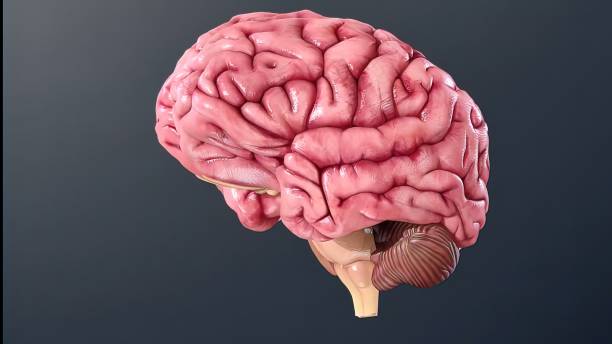
Neurobiology is an intriguing field that explores the intricate workings of the human brain and nervous system. It encompasses the study of neurons, neural circuits, neurotransmitters, brain development, and much more.we will delve into the fascinating world of neurobiology, discussing its basics, recent advancements, applications, and future directions. By the end, you will have a clearer understanding of how neurobiology contributes to our comprehension of the brain and its complex functions.
Neurobiology, also known as neuroscience, encompasses a vast array of disciplines, including molecular biology, genetics, physiology, psychology, and computer science. Its multidisciplinary nature allows researchers to approach the brain from various angles, unraveling its mysteries one piece at a time.
At the heart of neurobiology lies the remarkable neuron, the fundamental unit of the nervous system. Neurons are the building blocks that transmit electrical and chemical signals, forming complex networks called neural circuits. These circuits facilitate communication between different regions of the brain, allowing us to perceive, think, move, and experience emotions.
Introduction to Neurobiology
Neurobiology, also known as neuroscience, is the scientific discipline that investigates the structure, function, and development of the nervous system. It seeks to unravel the mysteries of how our brains process information, control bodily functions, and generate thoughts, emotions, and behaviors. With advancements in technology and research methodologies, our understanding of neurobiology has significantly evolved over the years.
The Basics of Neurobiology

Neurons and Neural Circuits
At the core of neurobiology are neurons, the fundamental building blocks of the nervous system. Neurons are specialized cells that transmit electrical and chemical signals throughout the body. They form intricate networks called neural circuits, which enable communication between different regions of the brain and the rest of the body. Understanding the structure and function of neurons and neural circuits is crucial for comprehending neurobiology.
Neurotransmitters and Synaptic Transmission
Neurons communicate with each other through chemical messengers called neurotransmitters. These molecules transmit signals across tiny gaps called synapses. The process of synaptic transmission involves the release, binding, and reuptake of neurotransmitters. Imbalances in neurotransmitter levels or disruptions in synaptic transmission can lead to various neurological disorders.
Neuroplasticity and Brain Development

Neuroplasticity refers to the brain’s ability to change and adapt throughout life. It plays a vital role in learning, memory formation, and recovery from brain injuries. The brain undergoes significant development during early childhood, shaping the foundation for cognitive and emotional functions. Studying neuroplasticity and brain development enhances our understanding of how experiences and environmental factors shape neural connections.
Read More: Top 8 Best Mini PC In 2023:
Advances in Neurobiology Research
Recent years have witnessed remarkable advancements in neurobiology research, driven by cutting-edge technologies and innovative approaches. These developments have paved the way for new insights into the complexities of the brain.
Brain Imaging Techniques
Sophisticated imaging techniques, such as functional magnetic resonance imaging (fMRI), positron emission tomography (PET), and electroencephalography (EEG), allow researchers to visualize brain activity in real-time. These non-invasive methods provide valuable information about brain function and help correlate neural activity with specific cognitive processes.
Genetic and Molecular Studies

Understanding the genetic and molecular underpinnings of neurobiology has become increasingly important. Researchers investigate the role of genes and their expression in brain development, neuronal signaling, and susceptibility to neurological disorders. Advances in genetic engineering techniques and genome-wide association studies have unraveled genetic factors that contribute to neurological conditions.
Neurobiology and Mental Health
Neurobiology has shed light on the biological basis of mental health conditions, such as depression, anxiety, and schizophrenia. Researchers investigate the structural and functional changes in the brain that accompany these disorders. This knowledge has opened up new avenues for developing targeted therapies and interventions.
Applications of Neurobiology
The insights gained from neurobiology research have significant implications across various fields and applications.
Neurobiology and Neurodegenerative Diseases
Neurobiology research plays a critical role in understanding and combating neurodegenerative diseases like Alzheimer’s, Parkinson’s, and Huntington’s disease. By unraveling the molecular mechanisms and identifying potential therapeutic targets, researchers strive to develop effective treatments to slow down or prevent disease progression.
Neurobiology and Learning and Memory

Studying neurobiology has enhanced our understanding of how we learn, form memories, and retain information. Insights into the neural processes involved in learning and memory formation can inform educational strategies and interventions to optimize learning outcomes.
Neurobiology and Drug Development
Neurobiology research has paved the way for the development of drugs targeting specific neurological disorders. By identifying molecular targets and understanding their role in disease processes, researchers can design and test drugs that modulate these targets, potentially leading to more effective treatments.
Future Directions in Neurobiology Research
As technology continues to advance, neurobiology research is poised to make even greater strides in the future. Several exciting areas hold promise for further exploration and discovery.
Brain-Computer Interfaces
Brain-computer interfaces (BCIs) enable direct communication between the brain and external devices. These interfaces have the potential to revolutionize medical treatments, assist individuals with disabilities, and enhance human cognition. Continued research in this area could lead to remarkable breakthroughs.
Neurobiology and Artificial Intelligence
The intersection of neurobiology and artificial intelligence (AI) offers opportunities for the development of advanced AI systems inspired by the brain’s intricate architecture. By studying the brain’s information processing mechanisms, researchers aim to build intelligent machines capable of learning, reasoning, and adapting to their environment.
Ethical Considerations in Neurobiology
As neurobiology research advances, it is crucial to address ethical concerns associated with brain interventions, privacy, and informed consent. Ethical frameworks and guidelines need to be established to ensure responsible and accountable research practices.
Conclusion
Neurobiology is an ever-evolving field that continues to unravel the mysteries of the human brain. From the basics of neurons and neural circuits to the applications in neurodegenerative diseases and learning, neurobiology plays a vital role in expanding our understanding of the brain and its functions. With ongoing advancements and future directions, neurobiology research holds the promise of further transforming our knowledge of the brain and paving the way for innovative applications.












One Comment